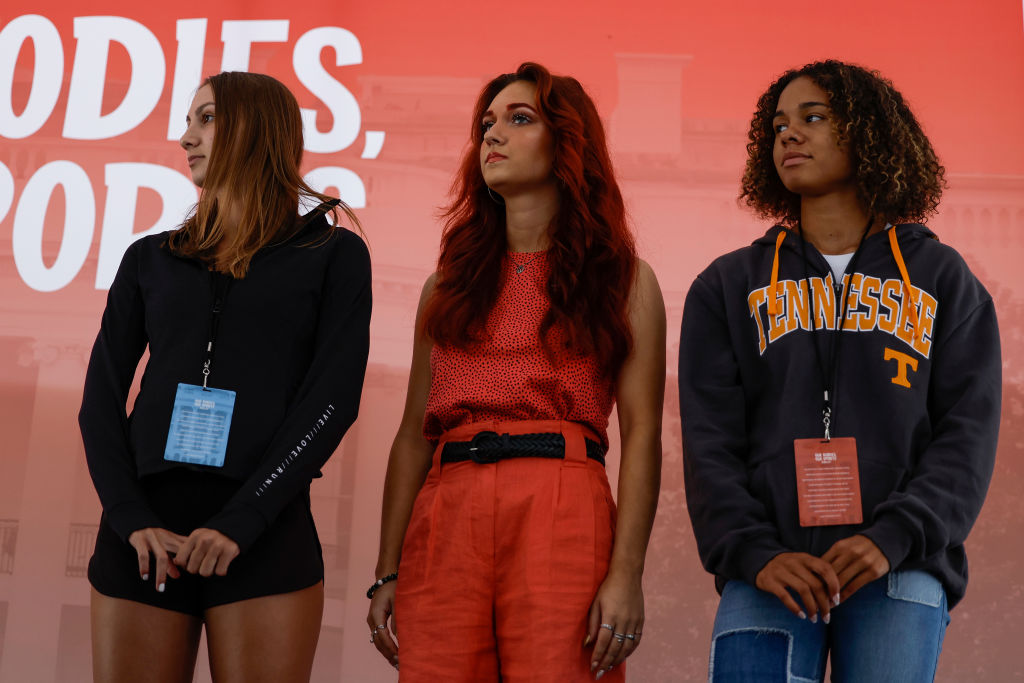Chelsea Mitchell, a young athlete known as the ‘Fastest girl in Connecticut,’ is fighting for fairness in women’s sports by suing the state. Mitchell, along with her teammates Selina Soule, Ashley Nicoletti, and Alanna Smith, is challenging a Connecticut law that allows transgender athletes to compete based on their gender identity rather than their biological sex. Mitchell’s motivation stems from her personal experience of losing over 20 races during high school due to competing against transgender athletes.
Mitchell discovered her exceptional running ability when she set two school records during her freshman year at Canton High School in 2016. Her goals were to win a state championship and pursue track in college. However, she faced a transgender athlete in her first statewide tournament, which was a concept she had not encountered before.
The impact of competing against transgender athletes was substantial. Mitchell claims that just two athletes deprived biological females of numerous opportunities, preventing them from winning 15 state titles. The participation of these athletes directly affected 85 other female competitors. Mitchell herself lost out on two All-New England honors and four girls’ state championships.
In her junior year, Mitchell anonymously voiced her concerns about the state’s practices under Title IX, fearing it might affect her college acceptance chances. However, by her senior year, she decided to join forces with Selina Soule and Alanna Smith to file a lawsuit, believing she needed to speak up for herself.
Mitchell’s case was initially rejected by a three-judge panel but will now be heard before the entire Second Circuit Court of Appeals in New York City on June 6. Her attorney, Matt Sharp, representing the Alliance Defending Freedom, hopes the court will rule in their favor and declare that Connecticut’s policy violates Title IX.
The athletes are asking the court to amend their sporting records to reflect the championships and rankings they would have achieved if transgender athletes had not competed against them. They argue that courts frequently recognize student athletes’ ongoing interest in vindicating their hard-earned records.













